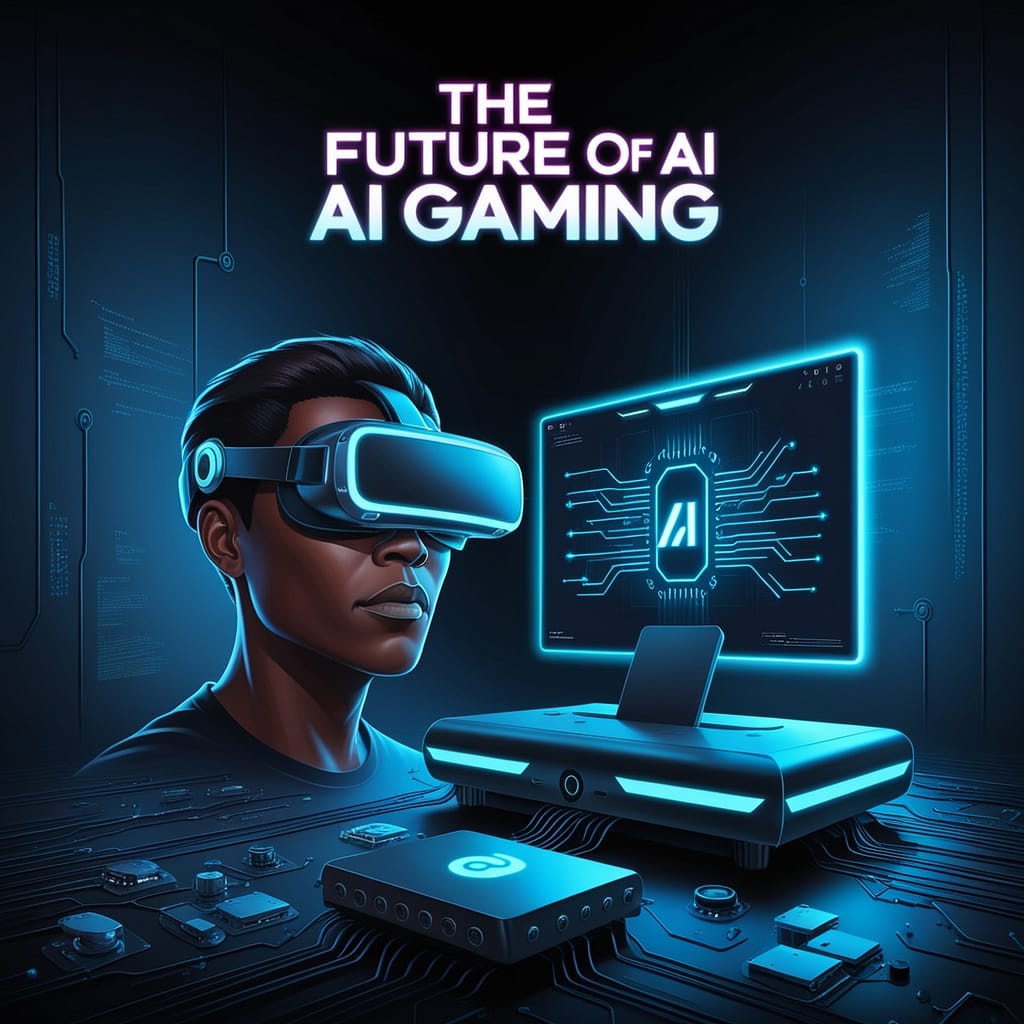Artificial intelligence (AI) is rapidly reshaping the gaming industry, pushing the boundaries of what is possible in terms of gameplay, storytelling, and player interaction. As technology continues to evolve, the future of AI in gaming promises to deliver even more immersive and dynamic experiences. Here’s a look at some key trends and innovations that are likely to define the future of AI in gaming.
1. Enhanced NPC Behavior
Traditionally, non-playable characters (NPCs) have operated on scripted behaviors, which can lead to predictable and often repetitive interactions. The future will see NPCs powered by advanced AI algorithms that allow them to react dynamically to player actions. Using techniques like machine learning and natural language processing, NPCs could exhibit realistic emotional responses, adapt their strategies in combat, or engage players in meaningful conversations. This would create a more immersive and believable game world. 🤖✨
2. Procedural Content Generation
AI is set to revolutionize how game worlds and content are created. Procedural content generation, which uses algorithms to create game elements on the fly, can lead to vast, unique environments and quests tailored to individual players. This approach enables endless gameplay possibilities, reducing repetitive elements and ensuring that no two playthroughs are alike. As AI becomes more sophisticated, we can expect increasingly complex and intriguing worlds that react to player choices and actions. 🌍🎲

3. Personalized Gameplay Experiences
The future of gaming will likely see a shift toward personalized experiences powered by AI. By analyzing player behavior, preferences, and skill levels, AI can adapt gameplay in real-time, creating a unique and tailored experience for each individual. From adjusting difficulty levels to suggesting quests or character builds, AI will ensure that every player has a personalized journey that keeps them engaged and motivated. 💖🎮
4. Dynamic Storytelling
AI has the potential to revolutionize storytelling in games. With advancements in natural language generation and AI-driven narrative structures, games could offer branching storylines that evolve based on player decisions. This would not only increase replayability but also allow for deeply personal narratives tailored to each player’s choices, making storytelling more interactive and engaging than ever before. 📚🎭
5. AI-Driven Game Testing and Development
AI is increasingly being employed in game development processes, particularly for testing and debugging. Machine learning algorithms can analyze gameplay data to identify bugs and balance issues much faster than human testers. This efficiency allows developers to create smoother, more polished gaming experiences. Moreover, AI tools can assist in the creation of assets, animations, and even music, streamlining the development pipeline and opening the door for more creative outputs. ⚙️🛠️
6. Social Interactions and Multiplayer Experience
In online multiplayer games, AI can enhance social interactions by creating more realistic and engaging environments. For instance, AI moderators can monitor player interactions to prevent toxicity and ensure a positive gaming atmosphere. Additionally, AI can facilitate matchmaking processes, ensuring players are paired with opponents of similar skill levels, thereby enhancing the competitive experience. 🕹️🤝
7. Augmented and Virtual Reality Integration
As augmented reality (AR) and virtual reality (VR) become more prevalent, AI will play a crucial role in creating seamless and interactive experiences. AI can help improve tracking and object recognition in AR games, while in VR, it can enhance immersion through realistic interactions with virtual characters and environments. This fusion will likely lead to groundbreaking gaming experiences that feel intuitive and lifelike. 🌟🕶️
Conclusion
The future of AI in gaming is incredibly promising, with the potential to create more immersive, personalized, and engaging experiences for players. From smarter NPCs and dynamic storytelling to procedural content generation and enhanced multiplayer interactions, AI will continue to drive innovation in the industry. As technology progresses, gamers can look forward to a new era of gaming that transcends traditional boundaries and offers experiences that are richer and more interactive than ever before. The possibilities are limitless, and the adventure has just begun! 🚀🎉



